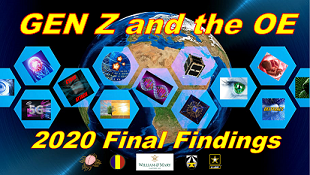[Editor’s Note: At the outset of this year, Mad Scientist resolved to broaden our aperture on the Operational Environment. Concerned that we might be getting a little too comfortable and complacent with what we thought we knew and understood, we launched a number of initiatives designed to mitigate our confirmation biases. With the initiation of our mutually beneficial and now enduring collaboration with The College of William and Mary’s Project on International Peace and Security (PIPS), we have imbued the Army with a younger demographic’s insights and perspectives on the Operational Environment. PIPS research fellows will be our Nation’s senior leaders and policy-makers in the mid-Twenty First Century. Today’s post summarizes their findings – Enjoy! (Note: Some of the embedded links in this post are best accessed using non-DoD networks.)]
 This year the Mad Scientist Initiative began a formal collaboration with The College of William and Mary’s Project on International Peace and Security (PIPS). PIPS is one of the premier undergraduate think tanks in the country. Based at William and Mary’s Global Research Institute, PIPS is designed to bridge the gap between the academic and policy communities. PIPS research fellows identify emerging international security trends and develop original policy recommendations to address those challenges. The PIPS program is influential in the national security community because it introduces the perspectives of America’s future leaders, today’s youth, into policy conversations addressing developing threats. Undergraduate fellows have the chance to work with practitioners in the military and intelligence communities and they present their white papers to policy officials and scholars at a year-end symposium in Washington, DC. Due to the outbreak of COVID-19, the 2019-2020 fellows were unable to present their finalized papers in person.
This year the Mad Scientist Initiative began a formal collaboration with The College of William and Mary’s Project on International Peace and Security (PIPS). PIPS is one of the premier undergraduate think tanks in the country. Based at William and Mary’s Global Research Institute, PIPS is designed to bridge the gap between the academic and policy communities. PIPS research fellows identify emerging international security trends and develop original policy recommendations to address those challenges. The PIPS program is influential in the national security community because it introduces the perspectives of America’s future leaders, today’s youth, into policy conversations addressing developing threats. Undergraduate fellows have the chance to work with practitioners in the military and intelligence communities and they present their white papers to policy officials and scholars at a year-end symposium in Washington, DC. Due to the outbreak of COVID-19, the 2019-2020 fellows were unable to present their finalized papers in person.
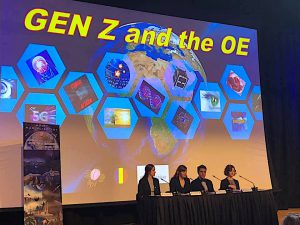 In February 2020, the PIPS fellows presented their evolving final-stage research at Mad Scientist’s GEN Z and the OE live conference event. Split into two panels, the fellows briefed their projects and fielded questions from the military professionals in the audience and broader online participants. Following this event, the research fellows lent their voices to “The Convergence” podcast (episodes 7 and 8) where they were able to discuss more specific aspects of their projects and provide their perspectives on, and key implications for, the Operational Environment.
In February 2020, the PIPS fellows presented their evolving final-stage research at Mad Scientist’s GEN Z and the OE live conference event. Split into two panels, the fellows briefed their projects and fielded questions from the military professionals in the audience and broader online participants. Following this event, the research fellows lent their voices to “The Convergence” podcast (episodes 7 and 8) where they were able to discuss more specific aspects of their projects and provide their perspectives on, and key implications for, the Operational Environment.
After a full academic year of research and writing, PIPS has published the 2019-2020 final papers. Please see below a brief research summary and follow the hyperlinks to read the full papers and view the associated video presentations for more details.
Transnational Repression: The Long Arm of Authoritarianism by Katherine Armstrong
Ms. Armstrong’s research focuses on the technological tools that authoritarian regimes utilize in targeting their diaspora communities to stifle political dissent 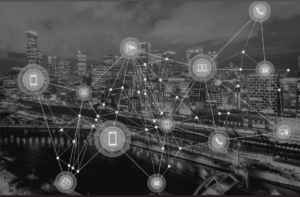 perpetrated beyond their borders. By conducting cyber-attacks, issuing threats, or spreading disinformation to emigrants of the authoritarian state, the regime is able to extend its repressive reach, thus endangering the norms of democracy and national sovereignty. The creation of a specialized watchlist for this behavior, the use of individual sanctions, and the improvement of INTERPOL policies may help to protect the victims of transnational repression. Video Presentation
perpetrated beyond their borders. By conducting cyber-attacks, issuing threats, or spreading disinformation to emigrants of the authoritarian state, the regime is able to extend its repressive reach, thus endangering the norms of democracy and national sovereignty. The creation of a specialized watchlist for this behavior, the use of individual sanctions, and the improvement of INTERPOL policies may help to protect the victims of transnational repression. Video Presentation
Clashing Codes of Conduct: Asymmetric Ethics and the Biotech Revolution by Caroline Duckworth
Ms. Duckworth’s paper addresses the increasing disparity between American ethics and the ethical perspectives of peer competitors such as Russia and China 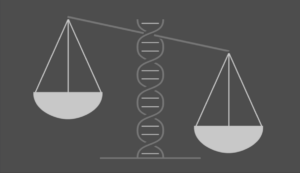 in biotechnology. As the U.S. strictly adheres to its regulations, countries with fewer ethical compunctions about biotechnology applications will begin to outpace the U.S. and dominate the technological and economic markets for biological and medical advancements. To ensure American competitiveness, formalized and widely promoted U.S. ethical standards for biotechnology created through collaboration and consensus may stimulate ethical bio-innovation in the United States. Video Presentation
in biotechnology. As the U.S. strictly adheres to its regulations, countries with fewer ethical compunctions about biotechnology applications will begin to outpace the U.S. and dominate the technological and economic markets for biological and medical advancements. To ensure American competitiveness, formalized and widely promoted U.S. ethical standards for biotechnology created through collaboration and consensus may stimulate ethical bio-innovation in the United States. Video Presentation
The Tech Trojan Horse: China’s Strategic Export of the Surveillance State by Michaela Flemming
Ms. Flemming examines the impacts of China’s export of surveillance technology and domestic digital monitoring. China is currently accessing the online data of its 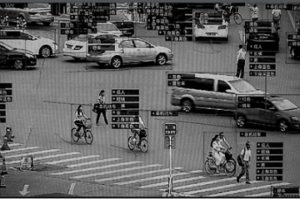 own people, building strong relationships with authoritarian client states who purchase its technology, and practicing global social management, all of which contribute to the degradation of democracy and democratic values in the world. The United States can counter China in this arena by establishing a clear legal framework for the handling of data, incentivizing the development of low-cost alternatives to circumvent Chinese hardware, increasing cybersecurity capacity, and increasing the costs of engaging in digital authoritarian practices. Video Presentation
own people, building strong relationships with authoritarian client states who purchase its technology, and practicing global social management, all of which contribute to the degradation of democracy and democratic values in the world. The United States can counter China in this arena by establishing a clear legal framework for the handling of data, incentivizing the development of low-cost alternatives to circumvent Chinese hardware, increasing cybersecurity capacity, and increasing the costs of engaging in digital authoritarian practices. Video Presentation
Replicating Reality: Advantages and Limitations of Weaponized Deepfake Technology by Megan Hogan
Ms. Hogan’s research identifies the rapidly emerging threat that deepfakes – highly realistic, fake videos – pose as weapons of disinformation to democracies  and to the truth at large. The development of accurate deepfake identifying software is required to counter the proliferation of this technology, which is increasingly employed to influence decision-making and perception around the world. As a weapon, the U.S. military can use deepfakes in isolation for deception and influence, within a broader conventional operation against a foreign adversary, or as a defensive measure. Video Presentation
and to the truth at large. The development of accurate deepfake identifying software is required to counter the proliferation of this technology, which is increasingly employed to influence decision-making and perception around the world. As a weapon, the U.S. military can use deepfakes in isolation for deception and influence, within a broader conventional operation against a foreign adversary, or as a defensive measure. Video Presentation
In Defense of Data: How the DoD Can Strengthen AI Development by Clara Waterman
Ms. Waterman’s paper concentrates on the lack of standardization and the inefficiencies and redundancies in DoD data collection efforts and resulting  datasets. Accurate data input is critical to the correct functioning of AI and other computational systems that the DoD increasingly relies upon for threat assessment and battlefield decisions. Datasets that are inherently flawed produce suboptimal results which may mislead decision-makers or erode the United States’ strategic advantage against peer competitors. A centralized data clearinghouse could efficiently provide labeled and vetted data, which may enhance the speed and reduce the cost of projects which heavily rely on data inputs. Video Presentation
datasets. Accurate data input is critical to the correct functioning of AI and other computational systems that the DoD increasingly relies upon for threat assessment and battlefield decisions. Datasets that are inherently flawed produce suboptimal results which may mislead decision-makers or erode the United States’ strategic advantage against peer competitors. A centralized data clearinghouse could efficiently provide labeled and vetted data, which may enhance the speed and reduce the cost of projects which heavily rely on data inputs. Video Presentation
Disinformation Ink Spots: A Framework to Combat Authoritarian Disinformation by Lincoln Zaleski
Mr. Zaleski focuses on how authoritarian regimes identify, cultivate, and link various individuals or groups, termed “ink spots,” into a network of influence within  the United States. The authoritarian regimes then use these ink spot networks, whose composition varies from high-level corporate and political elites to marginalized or sympathetic individuals and organizations, to exploit the inherent weaknesses of a liberal democracy. Counter-offensive disinformation campaigns may prohibitively increase the cost of such tactics and in turn take advantage of the vulnerabilities of an authoritarian regime. Video Presentation
the United States. The authoritarian regimes then use these ink spot networks, whose composition varies from high-level corporate and political elites to marginalized or sympathetic individuals and organizations, to exploit the inherent weaknesses of a liberal democracy. Counter-offensive disinformation campaigns may prohibitively increase the cost of such tactics and in turn take advantage of the vulnerabilities of an authoritarian regime. Video Presentation
The Mad Scientist Initiative would like to thank the co-directors of PIPS, Professors Amy Oakes and Dennis Smith, for their administration of the program and mentorship of the fellows. The Mad Scientist team also wishes to extend our congratulations to the PIPS fellows for a year of hard work and perseverance through an extraordinary global event.
If you enjoyed this post, check out our Insights from the GEN Z and the OE Livestream Event and our associated conference page on the Mad Scientist All Partners Access Network (APAN).
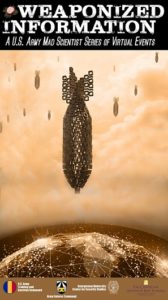 >>> REMINDER 1: The Mad Scientist Initiative will facilitate the fourth webinar in our Weaponized Information Virtual Events series this Wednesday, 17 June 2020 (1300-1430):
>>> REMINDER 1: The Mad Scientist Initiative will facilitate the fourth webinar in our Weaponized Information Virtual Events series this Wednesday, 17 June 2020 (1300-1430):
The Content Blitz: Quantifying the Islamic State’s Impact on the Saudi Twittersphere, with Henry Mihm, Inès Oulamine, and Fiona Singer, Georgetown University
Deplatforming, Deconstructed: A Typology for Technology Platforms, with Maddox Angerhofer, Kristina Cary, Bilva Chandra, and Ido Wulkan, Georgetown University
In order to participate in this virtual event, you must first register here [via a non-DoD network]. Registration is limited, so sign up now! And stay tuned to the Mad Scientist Laboratory for more information on our upcoming Weaponized Information virtual events!
>>> REMINDER 2: If you missed the first three webinars in our Mad Scientist Weaponized Information Virtual Events series — no worries! You can watch them again here.
>>> REMINDER 3: Mad Scientist wants your Information Warfare Vignettes! We launched this crowdsourcing exercise to complement our Weaponized Information Virtual Events and we want to hear from you! Review submission guidelines on our flyer here, then craft and submit your most innovative and insightful visions of information warfare to us at: MADSCITRADOC@gmail.com. The winner of our writing contest will be present at our virtual conference on 21 July 2020. Deadline for submission is 1 July 2020!

